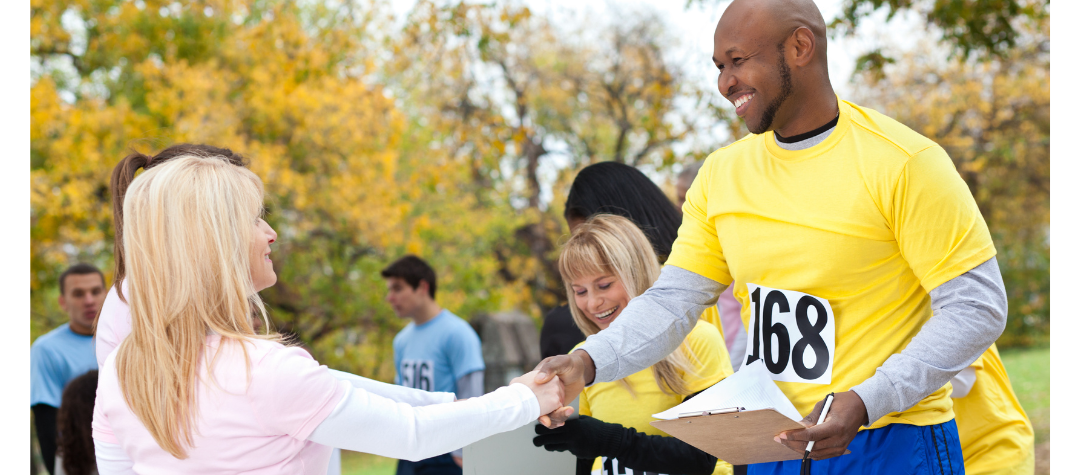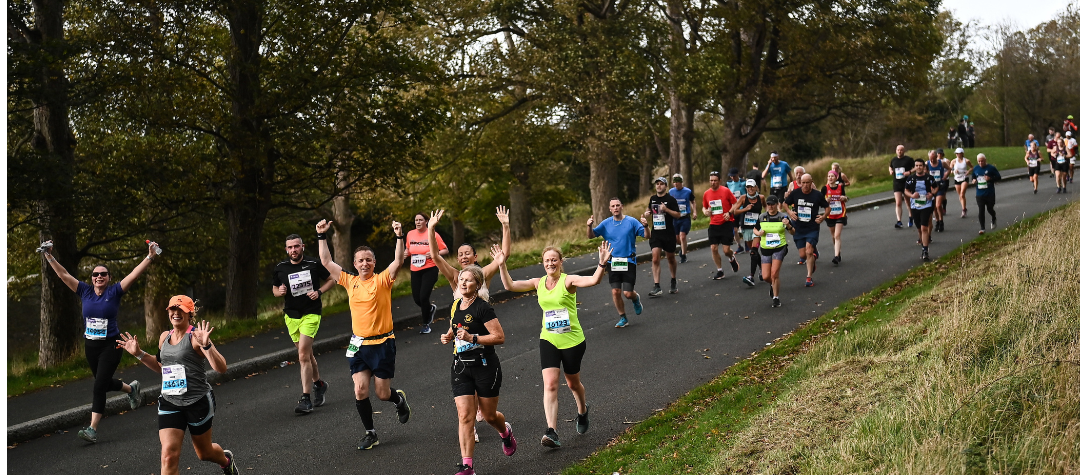Once you've got the fundraising bug, it's hard to lose it. Nothing beats the feeling of helping a good cause, and science agrees.
Research confirms that for one reason or another, we're addicted to 'doing our bit.' And seeing those closest to us donating to a deserving charity enhances our need to contribute to the world even more.
A study published by Katherine Grace Carman of Harvard University found that charitable work done by those around us influences our generosity an awful lot. Be that the "giving behaviour" and social pressure of the environment, or the relatability of the cause; there are several factors that make charity contagious.
Even if you don't raise a huge amount of money for your cause, the process of fundraising encourages others to think and become inspired.
Charity is fundamentally social. Even if you don't raise a huge amount of money for your cause, the process of fundraising encourages others to think and become inspired.
Discover how your fundraising campaigns go beyond the money you raise.
Start with those you know
Substantial research proves that we're more likely to donate to a person if it's somebody we know. Sounds self-evident right? Of course your family and friends will donate. But we're talking everyone.
Social influence is big in charitable giving. If you've a connection with a person, no matter how big or small, you're more likely to capture and maintain their interest than starting afresh.
Carman's study ‘Social Influences and the Private Provision of Public Goods’ agrees, "This technique taps into peer networks and the power of social connections." As they say, it isn't about what you know it's about who you know, at least to start with.
Bring it to the office
From Carman's study, she deducted that "the individual’s participation decision, to give or not to give, is strongly influenced by the participation of peers;" meaning that one person's generosity can really get the ball rolling, and increase your donation pot dramatically.
Often this is as a result of social pressure: feeling the need to contribute as much as or even more than your peers, but that's not necessarily a bad thing. Contributing to charity gives people what Carman describes as a "warm glow." If done in the right manner, you could motivate others with the positivity you hold for your charity and inspire them to start their own projects, or simply feel naturally inclined to donate.
Step it up on social media
Nothing's more addictive than social media . So what better way to step up your fundraising game than on a platform that's the potential to reach millions?
Everyone remember the #nomakeupselfie? Combining the support of friends and family with social pressure, images of fresh-faced individuals inspired women (and men) far and wide to wipe off the foundation in the name of Cancer Research UK. The campaign raised a staggering 8 million pound in 6 days, highlighting the power and influence social media has to offer.
Scrap anonymity
Charity increases its appeal when made public – the more people who know about your good work the better. And the same goes for donors. If you've a fundraising page, set the bar by putting your highest donations right at the top. This is a useful indicator to others contributing of what's an acceptable amount to donate.
The same applies for every type of environment says Harvard's Carman: "in the context of workplace giving, endogenous effects occur when individuals give more because they observe their peers giving more." Again, it's all about social influence, and what others donate tends to dictate our own charitable behaviour.
Organise your campaign in a way that benefits your charity the most. By scrapping anonymity and acknowledging those who've helped you out, you encourage others to follow suit.
The best habit
New research suggests that the addictive nature of charity work directly affects our future fundraising habits. The need to repeat and exceed such a level of charitable doing becomes compulsive, in a good way of course.
In a study of young people, Behavioural Insights found that those who volunteered and participated in social action were "largely more willing to donate their time in the future," proving that charity isn't only contagious, but it also completely changes a person's perspective of the world and their continual contribution to it. The younger you start to participate in charity work, the better.
It's really good for you
They say there's no such thing as a selfless good deed and it's true – any type of charity work makes you happy. The feel-good factor ‘giving back’ provides sends happiness levels soaring, confirms research by Harvard Business School.
According to the study ‘Feeling Good About Giving,’ "happier people give more and giving makes people happier, such that happiness and giving may operate in a positive feedback loop." It comes as no surprise that once we've got a taste for charity work; we want to experience that natural high over and over again. When you're not working on a specific project, try doing one good deed a day:
- Donate food to your local shelter
- Buy a meal for someone sleeping on the streets
- Take your neighbour's bin out
- Make dinner for friends
- Hold the door open for the person behind you
Even the smallest of gestures can make a massive impact on both your health and others. In his book 'Why Good Things Happen to Good People,' Dr. Stephen Post found that charity work not only brought " life-enhancing benefits of caring, kindness, and compassion" but it also has the potential to make a positive impact on chronic illnesses, including HIV, multiple sclerosis, and heart problems.
From being a friend's shoulder to cry on, to running marathons and raising hundreds of pounds for a deserving cause, your approach to charity can take all shapes and forms.
Be influenced
If you're yet to be inspired to fundraise for charity, surround yourself with those who do. Charity work is unbelievably contagious, and those who love to give and help out others will no doubt encourage you to do the same – happy fundraising!














